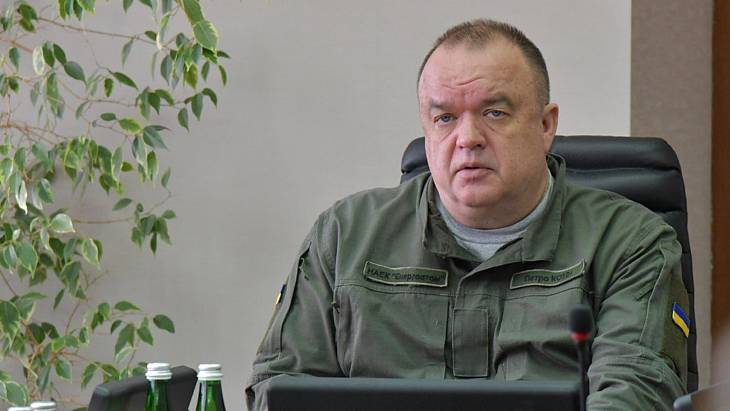In an interview with vesti.ua, he said that the agreement signed with Westinghouse covered the construction of five units in total, with the other three units to be distributed at the country’s other existing nuclear power plants.
Kotin said that in addition to those five units "we are looking at new sites. The most promising thing we are working on now is the Chyhyryn site in the Cherkasy region, where a power unit was planned to be built in Soviet times. There was a plot allocated for this and there are good conditions, the population is positive about the construction of such a facility. It is the centre of Ukraine, there is a high-power transmission line nearby, and a lot of water, which is important for a high-capacity nuclear power unit."
He said that they would also create a garden city out of Orbita, the part-built town that was largely abandoned when the nuclear power plant plans were halted more than three decades ago.
Kotin added that before the war with Russia began the administration of the Odessa region had been keen to build a nuclear power unit. There had been plans, he said, during Soviet times for such a plant but it was cancelled after the Chernobyl accident.
It is nearly three months since Russia launched its military action in Ukraine, during which time its forces have taken control of the Chernobyl site - for more than a month until leaving at the end of March - and have had military forces controlling the Zaporizhzhia (also known as Zaporozhe) nuclear power plant since the start of March.
Kotin was asked what changes to nuclear security rules were needed following the war, given that the world has seen the presence of military forces, equipment and shelling - as well as reports by Ukraine of cruise missiles flying overhead - at nuclear power plants.
Kotin said there needed to be rules agreed in cases of such aggression in future against a civilian nuclear facility and agreement on "how to protect it, what actions should be taken by the the International Atomic Energy Agency (IAEA) at the international level". One measure Ukraine has wanted enforced was the adoption of a 30 kilometre non-military zone around nuclear facilities.
He also said that the five new Westinghouse units would include a double confinement shell which increases the protection of a reactor from a plane crash or a missile strike.
"But this problem is not solved only by technological design. You can strengthen the shell, but you need to take other measures. I visited a nuclear power plant in Pakistan … in Karachi, they built a triple perimeter of protection around their facility. In 2020, the IAEA recognised that the Karachi nuclear power plant has one of the best protection concepts," he said.
He said that in future nuclear safety measures will need to include "building a perimeter so that the enemy could not approach with tanks and artillery".
Another safety issue that the IAEA has raised is the presence of Russian nuclear staff at the occupied Zaporizhzhia nuclear power plant, saying their presence could disrupt the decision-making process for staff at the plant, which continues to be operated by its Ukrainian staff although it is controlled by Russian military forces.
Kotin said there were 10 staff from Rosatom at the plant, and he said they were studying the situation at the plant and documents, adding that Zaporizhzhia was a flagship nuclear power plant and "all our power plants have undergone a serious programme to strengthen security … and this is a completely different level of technology".
Another issued raised was that Ukraine currently has "a lot of capacity that is in reserve due to the reduction of electricity consumption in Ukraine", which, he said, could be exported. And, on Monday, Interfax Ukraine reported that Prime Minister Denys Shmyhal said at a government meeting Ukraine planned to resume additional power lines with Poland "to export electricity from Ukrainian nuclear power plants. It will help Europe stop importing Russian gas sooner".
In its daily update on Monday, Energoatom said that all the country's nuclear power plants continued to operate within safe limits. It has generally had seven or eight out of the total 15 units operating, with the rest shut for regular maintenance or held in reserve.








_97013.jpg)






